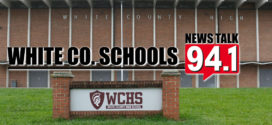Tennessee Tech has adopted new academic policies designed to deal with Artificial Intelligence in classroom work.
Provost Lori Bruce said she tasked two groups to study the issue earlier this year, made up of faculty, students and university leadership. One focused on how to harness artificial intelligence to improve the academic process. The other focused on AI’s impact on academic integrity.
“One thing to note about the policy is it does not say that the use of AI is academic misconduct,” Bruce said. “It says the misuse of AI platforms. And so I really want to commend the committees. They worked very quickly and very efficiently to put into place different varying levels of use of AI in a classroom environment and crafted syllabi statements.”
Bruce said the committees developed statements that could be used by faculty in a syllabus, describing the degree to which a faculty member will allow AI to be used in a class. The committee also suggested changes to Policy 217 which outlines academic integrity and misconduct.
Among the changes, the policy said faculty members have the final say to approve or disapprove the sources used for course assignments, including AI. Artificial intelligence cannot be used to create content that a student submits as his/her own. President Phil Oldham approved the policy changes over the summer so it could be rolled out at the start of the fall semester. The Board of Trustees ratified the rule Thursday.
“Almost all faculty chose the middle ground approach,” Bruce said. “There’s going to be assignments where they want pure, independent thought, and then there’s going to be assignments where they want the students to leverage AI to complete the assignment because they want to start training the students on how to appropriately use AI so that it frees them up to spend their time at a higher level of cognitive thought and processing.”
Trustee Tom Jones said he supported the policy, but asked that it be reevaluated in one year. He said the technology continues to evolve quickly. Further, Jones said AI should be a part of education. Jones compared Artificial Intelligence to computers thirty years ago, as a tool that stopped students from having to do math problems by hand.
“Part of the educational process needs to be to learn to use AI to your advantage, to expedite many, many things,” Jones said. “I think the evolution of AI, if used properly, can be a fantastic technological advantage. So you can’t look at it as no, no, you can’t use it at all because that’s plagiarism. You’re not doing your own work. I can only speak from the point of view of engineering, but I challenge all colleges and areas to look at it from that perspective.”
Student Trustee Addison Dorris served on both committees. She said the updated policy provided clarity to students.
“Students are misusing this technology, but they’re also using it for good,” Dorris said. “It’s the greater of two evils. But they are scared that if they use it on an assignment where they get their work done faster, are they going to get in trouble for it?”
 News Talk 94.1/AM 1600 Where The Upper Cumberland Talks
News Talk 94.1/AM 1600 Where The Upper Cumberland Talks







